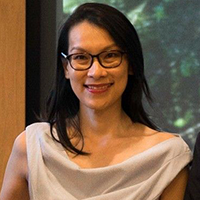Fast Facts
Location
Commencing
- Online: February, July
- Townsville: February, July
- Cairns: February, July
Fees
$16,323.00+
+estimated annual Commonwealth Supported Fee for a full-time study load
Plus Student Services and Amenities fee
Fee deferral and scholarships available if eligible
Duration
5 years full-time
Entry Requirements
ATAR 66.5
English (Units 3/4,C)
QTAC Codes
- 311529
- 311521
- 321521
Course detail
Discover how an understanding of social systems can support knowledge of the legal system. As you study the Bachelor of Arts — Bachelor of Laws joint degree, you’ll learn the role of law in social, economic, environmental and political contexts. You’ll also consider the importance of stable government, economic prosperity, the protection of individual and cultural rights, and the wellbeing of societies in the Tropics and throughout Australia. You’ll then explore the connections between the two, to understand how the Arts and Law can complement each other.
In this five-year joint degree, you will gain an in-depth understanding of the concepts, principles and values of the law, enhanced by the critical analysis, problem-solving and research capabilities of the arts and humanities. The Bachelor of Arts — Bachelor of Laws degree qualifies you for admission to practice law in Queensland and provides you with the analytic and communication skills of the Bachelor of Arts.
Learn from world-class lecturers and experience small, friendly classes and personalised support. Practical work placements will ensure you are work-ready when you graduate. In the Bachelor of Laws, you’ll get firsthand experience with the legal system through mock trials as well as the chance to gain practical training in North Queensland’s first ‘moot court’ with e-court facilities at JCU Cairns, Bada-jali campus, City. The law discipline will enable you to develop an understanding of a broad and coherent body of legal knowledge, the Australian legal system, and underlying principles and concepts, including international and comparative contexts
The arts disciplines will help you understand how humans recognise, record and debate human practices, meanings and values, and will show you how to apply this understanding to historical and contemporary contexts. The arts disciplines include Anthropology, Archaeology, Criminology, English, History, Human Geography, Human Services, Indigenous Studies, Politics and International Relations, Psychology Studies and Sociology.
Tailor your studies to suit your passion, with 11 majors to choose from within the Bachelor of Arts. You can choose up to two majors or one major with two minors, which can complement your studies in Law, broaden your area of expertise, or allow you to pursue topics that spark your interest.
If you wish to practice law, you should obtain further information from the Barristers’ and Solicitors’ Admission Boards.
Additional information
Bachelor of Arts and Law
JCU offers the Bachelor of Law and Arts for students to learn about both the Australian legal system and the way the legal system impacts people on an individual, societal, and cultural level, both presently and historically. This degree does not simply qualify you for admission to practice law; it also ensures that you can do so conscientiously and not in a vacuum. It also allows graduates to pursue a greater diversity of job opportunities, especially relating to Indigenous protections and cultural preservation. In essence, you will come to understand the foundations of Australian law, how they came to being, and how they change our society in numerous ways.
Over the course of five years, this joint degree will help you understand how to think about Australian law. Where is it punitive? Where is it rehabilitative? What rights are valued above all else? Where does the legal system become tricky or particularly convoluted? Five years of study cannot cover the entirety of the country’s legal system, but you will learn the basics that all specialisations share, and which help you understand where the law fits into our society.
Meanwhile, the arts side of this joint degree helps you analyse and contextualise the laws you study. What is the history behind certain legal practices? How does that affect their usage today? What is the motivation behind certain laws today, and what consequences do those laws have beyond their intended effects? How do different groups of people in society view the legal system and its representatives? The humanities in your degree will help you understand your legal studies outside of theory. You can choose from 11 different majors in the arts, each of which offers something different to your legal coursework. Conversely, your legal studies help you understand the framework in which many creative institutions operate. For example, with a background in history, you could pursue a career in heritage sites and cultural preservation.
Practical Experience within the Bachelor of Arts and Bachelor of Laws
JCU approaches higher education differently. Your practical experience is more than just a way of applying your coursework in real situations. In this Bachelor of Law and Arts at Queensland JCU, you will see a wide variety of practical work to help you determine where your skills and your passion lie. You will see the functions of different legal representatives in the various e-courts and mock trials you will attend. By the time you graduate, you will have seen a lot of what it means to be a barrister versus a solicitor versus a legal officer, and you can plan your future accordingly.
The Next Steps to Start Your Career with a Bachelor of Law and Arts
JCU is the finest choice for those seeking a joint Bachelor of Arts and Law in Queensland. To begin applying, please access JCU’s Online Application Portal. You can also learn more about other double arts degrees, such as the Bachelor of Arts and Business and the Bachelor of Arts and Science.
Hide additional information
Inherent requirements
Inherent requirements are the identified abilities, attributes, skills, and behaviours that must be demonstrated, during the learning experience, to successfully complete a course. These abilities, attributes, skills, and behaviours preserve the academic integrity of the University’s learning, assessment,and accreditation processes, and where applicable, meet the standards of a profession. For more information please review the inherent requirements for the Bachelor of Arts - Bachelor of Laws.
Majors
JCU’s Bachelor of Arts offers 11 majors for you to choose from. Each major provides you with in-depth knowledge in that subject area.
Anthropology
Study history, languages, politics, economics and social systems. Understand cultural and ethnic differences and analyse how people’s beliefs fit into a wider social, political and economic context.
Learn the research, observation and interview techniques that will equip you to work with those from diverse cultural backgrounds. Develop skills critical in decision making for governments, corporations and not-profit organisations.
Archaeology
Develop skills in archaeological site recording and conservation. Participate in field trips to investigate heritage site excavations and Aboriginal Australian rock art sites.
You may also have the opportunity to travel on South-East Asian excursions. You will learn the fundamentals of archaeology, then expand on this knowledge with more specialised offerings in Evolutionary, Forensic, Asian, Australian and European Archaeology.
Criminology
Learn why people are motivated to commit crime and explore strategies to prevent law-breaking and rehabilitate offenders. Throughout your studies, you can participate in a wide range of extracurricular criminology student activities.
This course equips you with skills to help make a difference in your community. It combines subjects from Sociology, Anthropology, Psychology, Social Work and Law.
English
Gain critical communication and reasoning skills and develop your understanding of the English language, while growing your passion for reading and writing. JCU English major students examine a wide range of literary periods and genres that provide a comprehensive source of historical and cultural understanding.
Grow your passion for written and visual literature as you study the talents of Shakespeare, diverse forms of cinema, Australian literature, children’s literature and more.
History
Gain an intimate knowledge of humanity by examining past societies and cultures. You will study the history of North Queensland and develop your understanding of Australian history.
Analyse major historical events in a global context and investigate how political, economic and environmental events shaped different communities. Graduates have the skills needed for careers that demand strong research and communication abilities.
Human Geography
Explore the interrelationship between people and their natural and built environments. Develop specialist skills including urban planning and design, regional sustainability, and social and environmental impact assessment.
Become proficient in identifying problems, communicating explanations, analysing data and relevant computing techniques. Graduates develop recommendations to assist in solving major social and environmental problems.
Human Services
Develop skills that will prepare you to work with marginalised and vulnerable people. Study social policy, community planning and development, education and capacity building, organisational practice and social responsibility.
Benefit from JCU’s research culture and working relationships with government agencies and local community groups. You will gain practical skills and experience through field trips and project work.
Indigenous Studies
Expand your understanding of the complex interface between Indigenous and Western knowledge, perspectives and practices in Australia today. Explore Indigenous knowledge and traditions, colonial disruptions, and Indigenous re-assertion in the current era, from the local to the global.
Some subjects include field trips, and one includes an optional international trip to an Indigenous community. Graduates are prepared to engage thoughtfully with Indigenous Australians and Indigenous issues in professional and community spaces.
Politics and International Relations
Take a deep dive into the people, institutions and issues involved in Australian and international politics. Explore political processes, policy, diplomacy, political economy, and globalisation of Australia and the Asia-Pacific.
You will examine Australia's global position and role, economic and social policies, traditional and non-traditional threats to security, poverty and other topics relevant to our modern society.
Psychology Studies
Gain a deeper understanding of the biological, social and cultural factors that influence how humans think, feel and behave. Explore the history of psychology, the nervous system, memory, cognition, intelligence, motivation, emotion, health psychology, personality and psychological disorders.
This major is not accredited. If you want to become a Registered Psychologist, find out more about the Bachelor of Psychological Science (Honours). This major is not available at Cairns campus.
Explore Psychology Studies
Sociology
Develop the analytical skills to learn how society is organised and how we interact with each other. Study social trends and understand why and how societies and institutions have developed through history.
Gain social science research tools and explore a diverse range of topics. Examine the societal issues of the Tropics, including race, gender identity, poverty and wealth.
A JCU Arts-Law degree gives you the versatility and diversity of skills to choose from many different careers.
Career pathways — depending on what majors you choose — may include law, land rights and Indigenous affairs, education, politics, economics, history, public policy, or human rights
You could perform roles such as barrister, solicitor, public prosecutor, community lawyer, legal officer, or in-house counsel for large companies.
Entry score threshold
These are the lowest adjusted scores we made an offer to in Semester 1, 2023. Entry scores are based on the most recent Semester 1 intake and are updated in June each year. Meeting the threshold doesn't guarantee admission.
ATAR/Selection Rank: 66.50
Entry score range
This table shows the range of entry scores for recent secondary students offered a place in the Bachelor of Arts - Bachelor of Laws for Semester 1, 2023. The table includes offers deferred to Semester 1, 2023 which may have been assessed using the entry score threshold of an earlier year.
JCU Townsville
Without adjustments | With adjustments* | |
|---|---|---|
Highest | 95.70 | 99.70 |
Median | 77.08 | 81.08 |
Lowest | 64.70 | 66.70 |
JCU Cairns
Without adjustments | With adjustments* | |
|---|---|---|
Highest | 95.95 | 99.95 |
Median | 84.90 | 86.90 |
Lowest | 70.30 | 72.30 |
Notes:
<5 – indicates less than 5 ATAR-based offers made.
* Refer to Adjustment Factors
Find out more about who you might study with by viewing this course’s student profile.
Adjustment factors
国产自拍 University applies bonus ranks under the Regional Preference Scheme and QTAC’s Educational Access Scheme (EAS). Learn more about JCU’s adjustment factors.
Handbook year | Information valid for students commencing in 2024 |
Course code | 60210 |
Course type | Bachelor Degree (AQF Level 7) |
Professional accreditation status | The Bachelor of Laws is accredited by the Legal Practitioners Admissions Board (LPAB) & Chief Justice. To be eligible for admission as a solicitor in Queensland, an applicant must have completed approved law qualifications (this degree satisfies that requirement), have undertaken approved practical legal training via a practical legal training course or Supervised Traineeship at a firm, and be able to satisfy the Legal Practitioners Admissions Board and the Supreme Court of Queensland of their fitness to practise. The same requirements apply to those intending to practice as a barrister but, to obtain a barrister’s practising certificate applicants must also pass the Bar Exams and complete the Bar Practice Course after being admitted as a lawyer, followed by one year of mentoring and supervision. This course is also certified under the Australian Law School Standards. |
Owner | Academy |
College | Arts, Society and Education Business, Law and Governance |
Award Requirements
Admission Requirements
Course pre-requisites | English (Units 3/4,C) |
Minimum English language proficiency requirements | Applicants of non-English speaking backgrounds must meet the English language proficiency requirements of Band 2 – Schedule II of the JCU Admissions Policy. |
Special admission requirements | A student who has previously graduated with either a Bachelor of Arts or a Bachelor of Laws shall not be admitted to the joint degree. |
Academic Requirements for Course Completion
Credit points | 120 credit points as per course structure |
Additional completion requirements | The Psychology Studies major is not an Australian Psychology Accreditation Council (APAC) accredited sequence. |
Course learning outcomes | JCU graduates are committed to lifelong learning, intellectual development, and to the display of exemplary personal, professional and ethical standards. They have a sense of their place in the tropics and are charged with professional, community, and environmental responsibility. JCU graduates appreciate the need to embrace and be acquainted with the Aboriginal and Torres Strait Islander Peoples of Australia. They are committed to reconciliation, diversity and sustainability. They exhibit a willingness to lead and to contribute to the intellectual, environmental, cultural, economic and social challenges of regional, national, and international communities of the tropics. On successful completion of the Bachelor of Arts, graduates will be able to:
On successful completion of the Bachelor of Laws, graduates will be able to:
|
Inherent Requirements
Inherent Requirements | Inherent requirements are the identified abilities, attributes, skills, and behaviours that must be demonstrated, during the learning experience, to successfully complete a course. These abilities, attributes, skills, and behaviours preserve the academic integrity of the University's learning, assessment, and accreditation processes, and where applicable, meet the standards of a profession. For more information please visit: Bachelor of Arts - Bachelor of Laws. |
Reasonable adjustments | All JCU students have the opportunity to demonstrate, with reasonable adjustments where applicable, the inherent requirements for their course. For more information please visit: Student Disability Policy and Procedure. |
Course Structure
CORE SUBJECTS
Level 1
BA1001:03 Time, Truth, and the Human Condition
BA1002:03 Our Space: Networks, Narrative and the Making of Place
LA1101:03 Legal Institutions and Processes
LA1102:03 Legal Research, Writing and Analysis
LA1105:03 Contract Law 1
LA1106:03 Contract Law 2
LA1107:03 Contemporary Practice: The New Lawyer
LA1027:03 Human Rights Law or LA1022:03 Public International Law or LA1903:03 Indigenous Peoples and the Law
SS1010:03 Australian People: Indigeneity and Multiculturalism
Level 2
LA2021:03 Personal Property and Land Law 1
LA2016:03 Land Law 2
LA2017:03 Principles of Criminal Law A
LA2018:03 Principles of Criminal Law B
LA2019:03 Torts A - Specific Torts
LA2020:03 Torts B - Negligence
Level 3
BA3000:03 Arts Edge
LA3004:03 Evidence
LA3006:03 Administrative Law
LA3013:03 Principles of Equity
LA3014:03 Law of Trusts
LA3105:03 Constitutional Law
LA3106:03 Company and Partnership Law
Level 4
LA4022:03 Civil Procedure
LA4038:03 Legal Ethics and Trust Accounting
OPTIONS
Select an Arts major from Table A
PLUS
Select 9 credit points of any level 2 and 3 Humanities, Arts and Social Science subjects
PLUS
Select 3 credit points of specified subjects from List 1
PLUS
Select 12 credit points of subjects from List 2
List 1
LA4014:03 Clinical Legal Studies
LA4021:03 Competition Mooting
LA4039:03 Advocacy and Criminal Sentencing
LA4041:03 Legal Placement
LA4043:03 Multidisciplinary Project
LA4044:03 Independent Project
List 2
LA2902:03 Environmental Law and Policy
LA2903:03 Indigenous Peoples and the Law
LA3011:03 Commercial and Personal Property Law
LA4007:03 Succession
LA4012:03 Public International Law
LA4019:03 Conveyancing and Drafting
LA4020:03 Employment, Workplace and Industrial Relations Law
LA4023:03 Taxation Law
LA4024:03 Advanced Taxation Law
LA4027:03 Human Rights Law
LA4031:03 Health Law
LA4032:03 Family Law
LA4034:03 Alternative Dispute Resolution
LA4039:03 Advocacy and Criminal Sentencing
LA4045:03 Intellectual Property Law
LA4049:03 Technological Disruption, Cyberspace and the Law
LA4050:03 Sport and Entertainment Law
LA4106:03 Advanced Company Law
LA4107:03 Contemporary Issues in Justice and Criminal Law
TABLE A (ARTS MAJORS)
Credit points in major | 24 credit points |
MAJOR | AVAILABLE AT | NOTES |
JCU Cairns JCU Townsville | ||
JCU Cairns JCU Townsville | ||
JCU Townsville JCU External | Not all subjects available internally | |
JCU Cairns JCU Townsville External | ||
JCU Cairns JCU Townsville External | Not all subjects available internally Students will need to take some subjects offered only in external mode | |
JCU Cairns JCU Townsville | ||
JCU Cairns JCU Townsville | ||
JCU Cairns JCU Townsville | ||
JCU Cairns JCU Townsville External | Not all subjects are available at all locations | |
JCU Townsville | If you plan to practise as a registered psychologist, you will need additional studies beyond a Bachelor of Arts in Psychology Studies | |
JCU Cairns JCU Townsville | Not all subjects available internally |
Location
COURSE AVAILABLE AT | NOTES |
JCU Cairns | Not all majors available |
JCU Townsville | |
External | Not all majors available |
Candidature
Expected time to complete | 5 years full-time or equivalent part-time |
Maximum time to complete | 11 years |
Maximum leave of absence | 1 year |
Progression
Course progression requisites | Must successfully complete 12 credit points at level 1 before attempting any level 2 or 3 subject |
Course includes mandatory professional placement(s) | No |
Special assessment requirements | Nil |
Professional accreditation requirements | Nil |
Supplementary exam for final subject | A student who has failed a single law subject towards the award in their final teaching period and who gained 40% or more of the marks for that subject, may be granted a supplementary examination in that subject |
Credit
Eligibility | Students may apply for credit transfer for previous tertiary study in accordance with the Credit Transfer Procedure. |
Maximum allowed | 80 credit points |
Currency | Credit will be granted only for studies completed in the 10 years prior to the commencement of this course. |
Expiry | Credit gained for any subject shall be cancelled 21 years after the date of the examination upon which the credit is based if, by then, the student has not completed this course. |
Other restrictions | A maximum of 18 credit points of credit may be granted at level 3 and 4. |
Award Details
Award title | BACHELOR OF ARTS – BACHELOR OF LAWS |
Approved abbreviation | BA-LLB |
Inclusion of majors on testamur | Majors will appear on the testamur |
Exit with lesser award | Students who have completed 24 credit points of their course award requirements, and withdraw from or fail to meet the requirements for progression in the later years, may be eligible for the award of Diploma of Tertiary Studies. Students who exit the course prior to completion, and have completed 72 credit points of study and appropriate subjects, may be eligible to receive the award of Bachelor of Arts. Students who exit the course after the first year of equivalent full-time study may transfer to the Bachelor of Laws without loss of credit (Note: Transfer after completion of any later year of the joint degree will normally entail loss of credit for non-Law subjects completed beyond level 1). |
Course articulation | Not applicable |
Special awards | Students may receive an Award of Recognition in accordance with the Recognition of Academic Excellence Procedure |
Honours
Honours availability | Honours is available in either or both disciplines Law honours is available as an additional 24 credit points of study. Arts honours is available as an additional 24 credit points of study. |
Eligibility | By invitation of the College Dean Normally a minimum overall GPA of 5.0 (ie. credit average) is required across the bachelor degree with credits or better in the discipline specific areas. |
Estimated annual Commonwealth Supported fee: $AUD16,323.00
A Student Services and Amenities fee is payable per subject up to a maximum amount per year.
A variety of Scholarships are available to suit different student types.
JCU Prep provides a pathway into this course. Enrolling in this flexible program will enable you to meet entry requirements including subject pre-requisites and ATARs. Introductory academic subjects are also available to prepare you for tertiary study.
*Excludes entry into the Bachelor of Advanced Science, Bachelor of Dental Surgery, Bachelor of Laws, Bachelor of Marine Science, Bachelor of Medicine, Bachelor of Surgery, Bachelor of Nursing Science – Bachelor of Midwifery, Bachelor of Pharmacy (Honours), Bachelor of Physiotherapy, and Bachelor of Veterinary Science (Honours).
Note the course QTAC code for the location you've chosen. You'll need to enter it as part of your QTAC application.
Application dates vary between courses, whether they're delivered in semester, trimester or carousel study modes. View our Application due dates page for more information.
ATAR score is indicative only. Entry scores will be finalised in the major offer round.
Real stories
-

Student
Rikisha Phineasa
Bachelor of Arts - Bachelor of Laws
A highlight of this degree is that I can network with people in many different faculties. With Law, I can dive deeper and learn more about my passion for helping people through the legal profession, while my Arts degree majoring in Indigenous Studies allows me to understand the complexities of Indigenous cultures.
-

Student
Jackson O’Hanlon
Bachelor of Arts - Bachelor of Laws
The flexibility of a Bachelor of Arts - Bachelor of Laws degree at JCU ensures that you can complete two degrees while expanding your knowledge on topics that are of interest to you. Studying two degrees will give you a clearer idea on what you are passionate about and what you want to do at the end of your studies.
-

Alumni
Eleanor Mak
Bachelor of Arts - Bachelor of Laws
Doing a JCU double degree helped tremendously when I was going for job interviews and subsequently in all the different roles I’ve had. You learn critical thinking, how to crystalise massive amounts of research into a few succinct points and then make a case, persuade others and build momentum around ideas.
-

Lecturer
Jamie Fellows
Head of Law
The benefit of studying at JCU is that there are smaller classes compared to other universities. If students need help, it is very easy to get access to their teaching staff. And for students who are living further away, with online study they can still come to JCU and study many of our courses.
-

Employer
Brendan Gaeta
Firm Partner at Connolly Suthers Lawyers
Connolly Suthers has a long history of employing JCU law graduates as they have a high level of understanding of the underlying principles and concepts of the Australian legal system. They demonstrate the intellectual and practical skills required in private practice. They know the north, its industries and people.